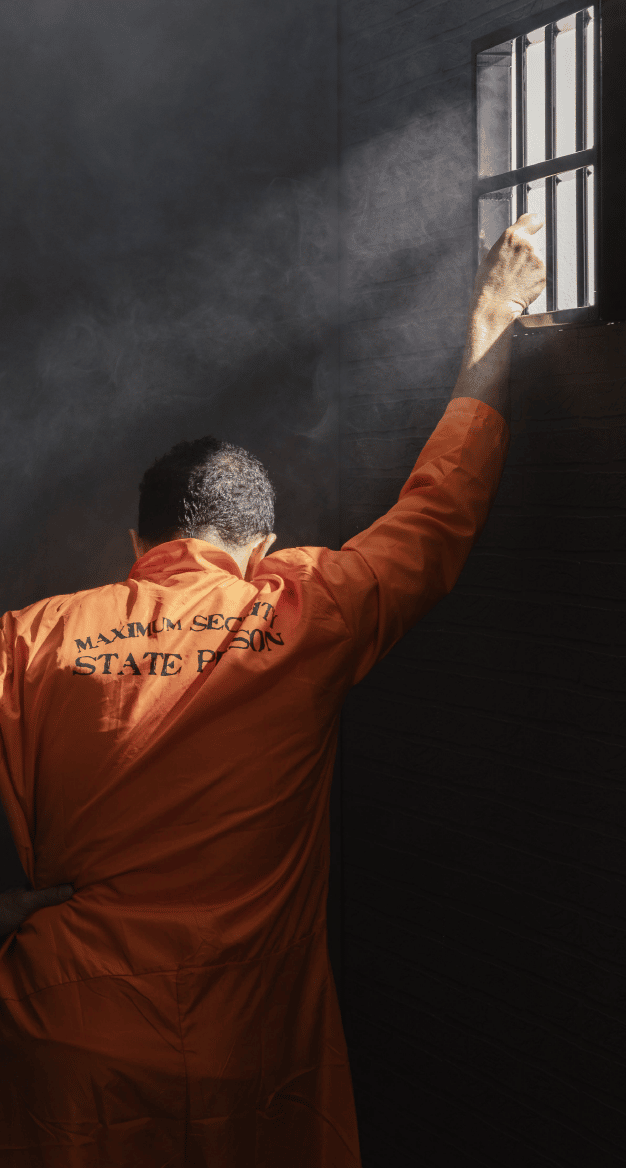In Nevada
Home / In Nevada
How is Parole Eligibility Determined in Nevada?
The Nevada Department of Corrections (NDOC) determines who is eligible for parole based on the laws in effect when the offense occurred, and the sentence imposed by the Court. The eligibility date may be effected by many other factors, including but not limited to statutory credit for good time credits, meritorious credits for participating and completing self help programming, counseling, using vocational and educational services, work credits, jail credits and various other factors influence the parole eligibility date. The inmate forfeits statutory good time when he/she commits new offenses or engages in violations of prison rules.
Nevada Revised Statutes Relevant to the Parole Function and Process
Nevada Revised Statutes (NRS) establishes the laws used in determining whether an inmate is eligible to be considered for parole. The table below summarizes some of the relevant laws.
Legislative Declaration
Legislative Declaration concerning parole, probation and residential confinement.
Eligibility for Parole
Consideration for Parole: Duties of Department of Corrections; use of photographs related to offense during meeting of the State Board of Parole Commissioners; conduct of meeting; notice of meeting to victim; prisoner’s rights; notice to prisoner of decision of Board.
Limitations on Board’s Power to release prisoners on parole.
When prisoner become eligible for parole.
Prisoners required to be certified by panel before release on parole; recertification required if prisoner returns to custody; revocation of certification; immunity.
Mandatory release of certain prisoners.
Credits on Term of Imprisonment
Credits for offender sentenced for crime committed on or after July 17, 1997.
Credits for completion of program of treatment for abuse of alcohol or drugs.
Credits for completion of vocational education and training or other program.
Parole in the State of Nevada is categorized by:
-
Discretionary Parole
-
Mandatory Parole Release (MPR), and
-
Parole Violations (PV)
What is Discretionary Parole?
Discretionary parole occurs when an inmate is granted parole before an offender completes his/her sentence, subject to certain conditions set by the parole board. With the exception of mandatory parole hearings, all parole hearings are considered discretionary. Inmates are eligible for discretionary parole hearings when they have served their minimum sentence, less any credits earned. If an inmate is denied parole at their discretionary hearing the Board must set the next discretionary hearing date within three or five years depending on the years remaining on the inmate’s sentence. Link for Discretionary Release Parole Guideline Worksheet.
What is Mandatory Parole?
Pursuant to NRS 213.1215 the Board of Parole is required to release eligible inmates under Mandatory Parole Release (MPR) unless the Board determines that the prisoner would be a danger to public safety while on parole. The risk level adopted by the Board for the discretionary release of prisoners will be considered when considering the release of a prisoner under MPR. Link for Mandatory Parole Release Guideline Workshet.
Prisoners who have been convicted of an offense listed in NRS 213.1214 (certain sex offenders) may not be released on MPR unless they are certified as not being a high risk to re-offend using a standard method of assessment. When considering whether to release a sex offender on Mandatory Parole, the Board will thoroughly review all the evidence including but not limited to the psychosexual risk evaluation and the parole risk assessments and will apply the higher risk of the two.
Parole violation hearings are conducted by the Board of Parole to determine whether or not a defendant has violated the terms and conditions of their early release from prison. Parolees who are found to be in violation of parole will either be:
- remanded back to prison to serve out their sentence, or
- ordered to stay at home in residential confinement under supervision
The standard of proof to revoke parole at a parole violation hearing is “substantial evidence” that the defendant has violated the terms and conditions of parole. This standard of proof is far less than the beyond reasonable doubt standard required in criminal trials.
An inmate must abide by all terms and conditions of their parole. Common examples of parole violation include:
- Use of drugs or alcohol
- Failure to submit to drug or alcohol testing
- Positive drug or alcohol test
- Failure to abide by curfew
- Failure to check in with parole officer
- Failure to wear electronic monitoring bracelet
- Failure to avoid certain locations and people such as victims
- Failure to participate in drug or alcohol programming
- Leaving halfway house without authorization or permission
- New crimes other than minor traffic offenses
- Leaving the state of Nevada without permission
If you have been charged with a parole violation or with committing a new crime, a conviction could mean the loss of your freedom. The most important step for you to take is to retain the services of an experienced criminal defense attorney to represent you in developing a defense strategy. Because each case is uniquely different with its own set of facts and circumstances you should consult an experienced criminal defense attorney to represent you and prepare your defense strategy.
Some of the most common parole violation defenses include:
- Wrong Person: It is not uncommon for a parolee to be misidentified. Police officers interacts with several people on a daily basis and occasionally they mix up or misidentify an innocent person.
- Falsely Accused: From time to time a parolee is falsely accused of violating parole, the motive of the person making the false accusation can vary.
- Unreliable informant or Witness: If the police used an informant, your attorney may be able to attack the reliability of the information obtained from an informant(s).
- Failure to Prove Guilt: While the burden of proof is much lower for a parole violation than it is in a criminal trial the state nevertheless must meet their burden of proof. Sometimes a case is so weak, and the evidence entirely circumstantial that the State fails to carry its burden of proof and the charges must be dropped.
Procedures for Parole Hearing
When the Parole Board receives information that a parolee has violated parole it will issue a written order certified by the Chief Parole and Probation Officer pursuant to NRS 213.151 which serves as a warrant for the parolee’s arrest; a warrant however, it is not necessary to arrest a parolee where law enforcement otherwise has probable cause to believe that a parolee violated the terms of their parole.
A. Probable Cause Inquiry
Once law enforcement has arrested the parolee a hearing officer conducts an inquiry pursuant to NRS 213.1511 to confirm that there was indeed probable cause that the parolee violated parole. In most, but not all cases, the inquiry must be held within fifteen (15) days of the arrest unless the parolee is a fugitive in which case the 15 days does not apply or within thirty (30) days if the prisoner was paroled by the authority of another state and is under supervision in this state pursuant to NRS 213.215. NRS 213.1517
A parolee has certain legal rights at Probable Cause Inquiry including but not limited to:
-
Right to be represented by an attorney
-
Right to present evidence in support of your defense
-
Right to testify or not testify at the hearing
-
Right to confront witness(es) (unless the witness is a confidential informant who could be harmed by disclosure of their identity
At the conclusion of the inquiry the inquiring officer will decide whether there is probable cause that the parolee violated parole, if it is determined that there is no parole cause the parolee will be released; however if there is a determination of probable cause the parolee can be remanded to prison or ordered to residential confinement to await a parole violation hearing.
B. Parole Violation Hearing
The purpose of a parole violation hearing is to determine whether the parolee is in violation of the terms and conditions of their parole. The hearing must occur within sixty (60) days of the parolee returning to state prison or residential confinement; however if the parole violation is a new crime, the Board must conduct the hearing within sixty (60) days of the resolution of the new criminal case.
-
Determination of No Parole Violation: If it is determined that the parolee did not violate parole he/she is released from custody.
-
Determination that Parole Was Violated: If it is determined that the parolee violated parole the Board may take the following action pursuant to NRS 213.1518
-
Revoke parole and remand the person back to prison to serve the duration of their prison sentence at which point they will not be eligible for parole on the underlying charge again and their good behavior credits will be forfeited; or
-
Permit the parolee to remain on parole with additional terms and conditions which generally will include supervised residential confinement.
Services Offered
Our practice focuses on parole and prison related matters. By focusing on each individual client’s growth, achievements, and demonstrated potential, successful parole outcomes have been achieved in hundreds of cases involving various types of offenses.
We accept cases that we believe our clients have a reasonable chance of success, or would otherwise benefit from our representation. We are committed to presenting the strongest and most compelling case for our client’s release on parole.
Our services include, but are not limited to:
-
Parole Suitability Hearings
-
Rescission/ En Banc and Parole Reconsideration Hearings
-
Youthful Offender Parole Hearings
-
Elderly and Third Striker Parole Hearings
-
Commutation of Sentence Petitions to the Governor
-
Compassionate Release Court Hearings and Appeals
-
Habeas Corpus petitions challenging parole denials/ governor reversals
-
Parole Violation Hearings/ Parole Revocation Hearings

If you are an inmate, a family member of an inmate, friend or a significant other who needs a dedicated lawyer for his or her parole hearing contact us now.
There are many factors that come into play at a parole hearing, the system remains biased against inmates and thus there is no guarantee of success for even the strongest parole candidate; however, having a skilled and experienced parole attorney fighting for you or your loved one gives him or her the best chance to beat the odds of being released.
Improve your odds of being paroled. Hire the Parole Attorney Legal Group today, we are committed to our clients success.
For Effective Legal Representation
Call Us Now
Contact Form
In Nevada



